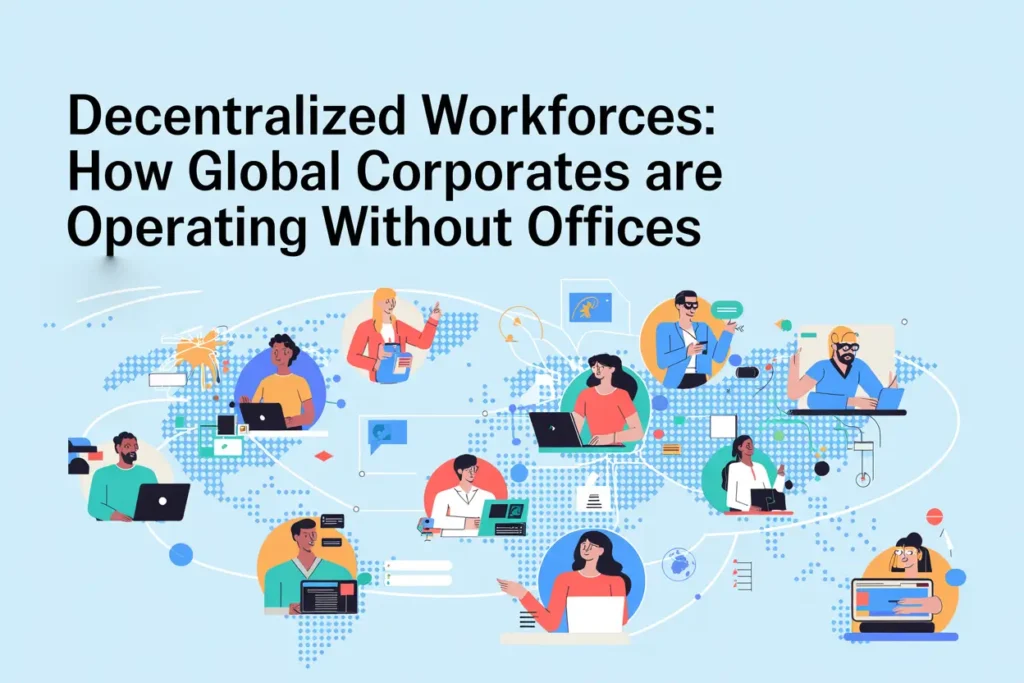
The Paradigm Shift: Embracing the Decentralized Workforce Model
In the aftermath of global disruptions and rapid technological evolution, corporations worldwide are transforming the way they operate. The traditional office-centric model is rapidly giving way to a decentralized workforce structure, where employees are distributed across cities, countries, and even continents. Major corporations are proving that permanent remote work is not only feasible but strategically advantageous.
Why Global Corporates Are Abandoning Physical Offices
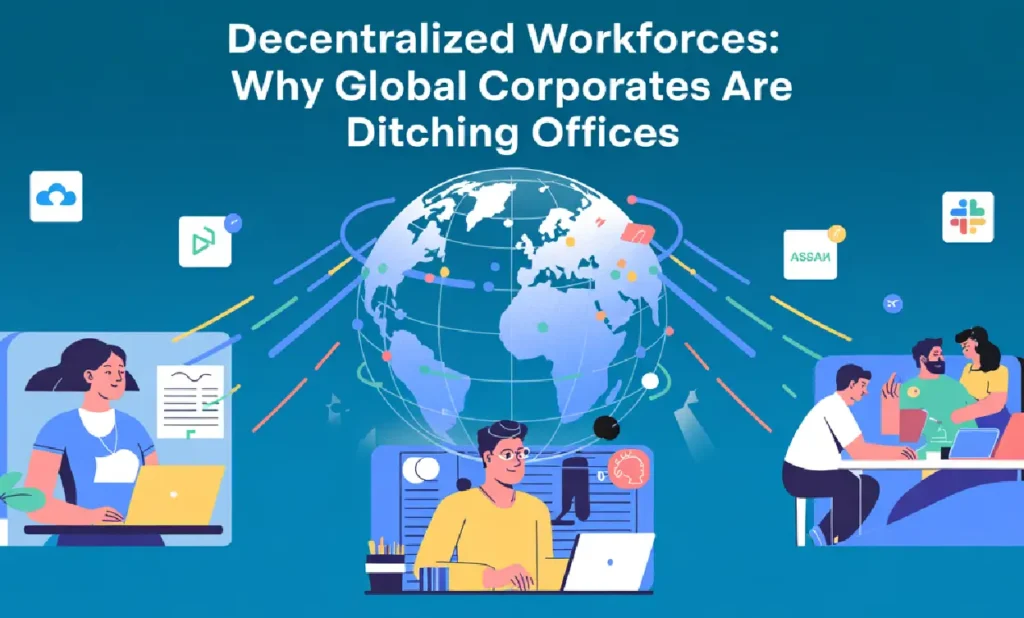
The shift to a decentralized workforce is more than a response to crises it is a strategic maneuver aimed at achieving agility, scalability, and cost-effectiveness. Leading multinational corporations such as Twitter, Shopify, and GitLab have completely reimagined their operational frameworks, showing that work without walls is not only viable but superior in many contexts.
Cost Efficiency at Scale
One of the most compelling reasons corporates are embracing decentralization is massive cost reduction. Eliminating the need for physical office space significantly reduces overhead costs—rent, utilities, maintenance, and real estate management. These savings are redirected toward talent acquisition, digital infrastructure, and employee wellness.
Access to a Global Talent Pool
With no geographic restrictions, companies can recruit top-tier talent globally. This model breaks down borders, allowing businesses to hire based on skill and cultural fit, rather than proximity. It also fosters diversity and inclusivity, enriching the organization’s innovation capabilities.
Enhanced Employee Productivity and Satisfaction
Remote-first environments often lead to higher productivity levels and improved job satisfaction. Flexible schedules, absence of commutes, and personalized workspaces contribute to employee well-being, which directly correlates with performance.
Technological Infrastructure: The Backbone of Decentralized Teams
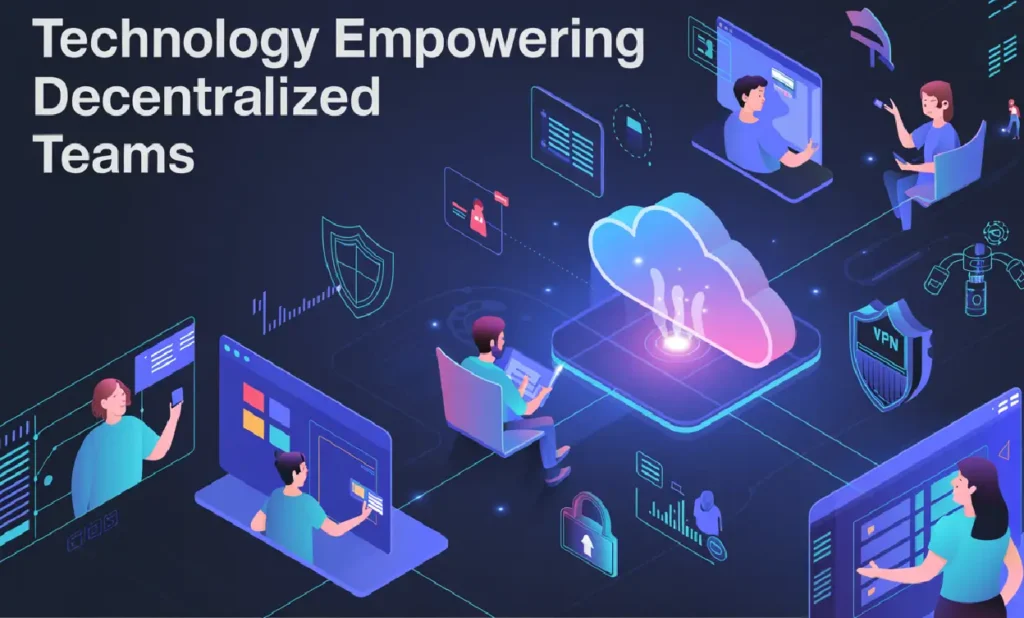
Advanced digital tools and platforms form the cornerstone of decentralized operations. From cloud computing to cybersecurity, technology enables seamless collaboration, communication, and data security.
Cloud-Based Collaboration Platforms
Companies rely on tools like Slack, Microsoft Teams, Zoom, Notion, and Asana to manage projects, meetings, and workflow. These platforms provide real-time updates, centralized documentation, and asynchronous communication vital for teams spread across time zones.
Cybersecurity and Data Protection
Without a centralized IT department, maintaining security is crucial. Corporates are investing in zero-trust security frameworks, VPNs, and advanced endpoint protection solutions to ensure secure remote operations.
AI-Powered Productivity Tools
Artificial Intelligence is increasingly integrated into decentralized systems to enhance productivity, automate mundane tasks, and provide actionable insights. Tools like Grammarly, Otter.ai, and AI-enabled CRMs are transforming how teams communicate and deliver.
Organizational Culture in a Virtual Environment

A decentralized workforce requires a deliberate and structured approach to culture building. In the absence of watercooler chats and physical gatherings, companies must proactively nurture engagement, alignment, and motivation.
Virtual Onboarding and Training
Corporates are investing in immersive onboarding experiences, utilizing gamified modules, virtual reality (VR), and video-based learning to integrate new hires efficiently. This ensures that organizational values and expectations are conveyed clearly from day one.
Fostering Connection and Engagement
Scheduled virtual team-building events, employee recognition programs, and interactive town halls are vital for maintaining morale. Platforms like Donut and Gather Town simulate social interactions and help build camaraderie in digital spaces.
Transparent Leadership and Communication
A decentralized structure demands radical transparency and open communication. Leaders must establish consistent rhythms for updates, feedback, and vision-sharing. This not only maintains alignment but also reinforces trust across the workforce.
Compliance and Legal Considerations in Decentralized Operations
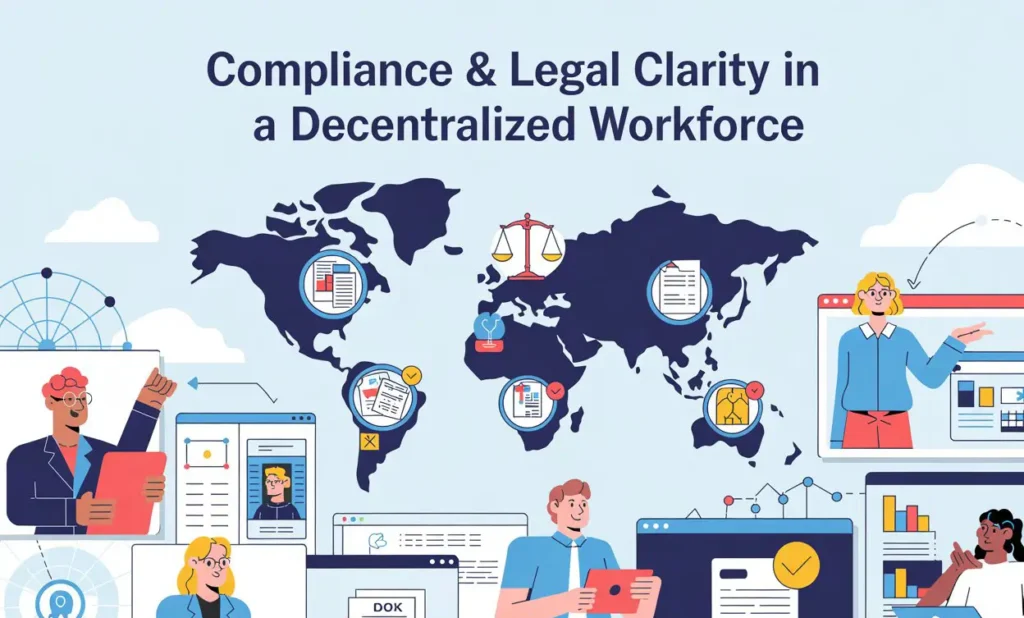
As global teams become the norm, corporates must navigate complex legal and compliance landscapes. These include labor laws, tax regulations, and data residency requirements across jurisdictions.
Localized Employment Frameworks
To remain compliant, organizations are partnering with Employer of Record (EOR) services like Deel and Remote.com, which help manage legal employment across various countries without establishing local entities.
Taxation and Benefits Management
Multi-jurisdictional teams require sophisticated payroll systems that manage local taxes, social contributions, and statutory benefits. Tools like Papaya Global and Oyster ensure smooth operations and compliance.
The Role of Leadership in a Decentralized Workforce
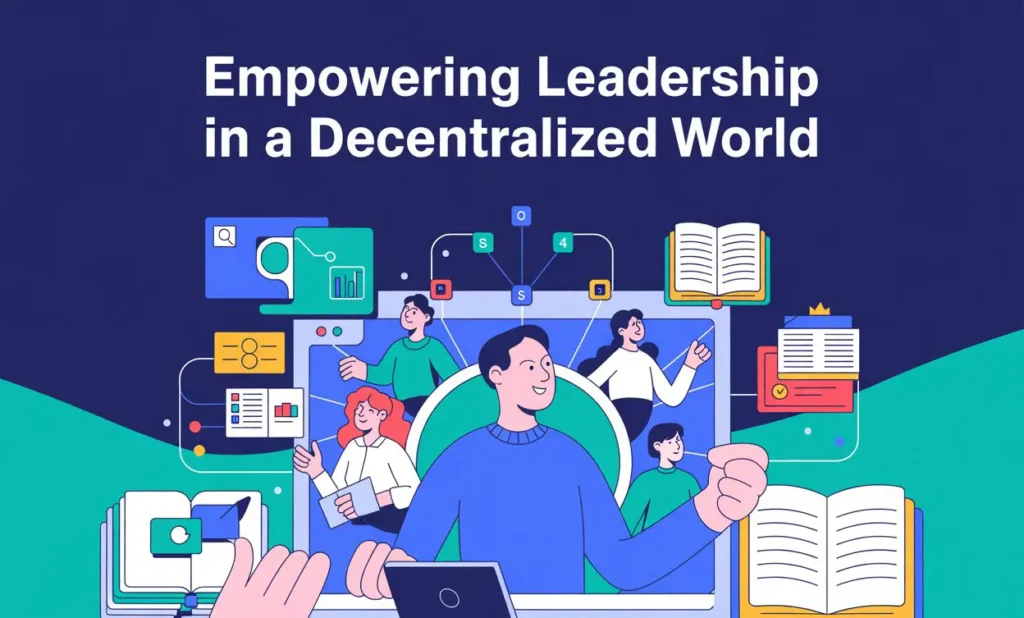
In a decentralized model, leadership must evolve. Command-and-control structures are replaced by trust-based, outcome-driven management. The focus shifts from hours logged to value delivered.
Performance Management and Accountability
Corporates are implementing OKR (Objectives and Key Results) systems to track outcomes. Regular check-ins and goal alignment tools ensure that employees are empowered yet held accountable.
Upskilling and Continuous Learning
To remain competitive, decentralized organizations foster a culture of lifelong learning. Offering online courses, mentorship programs, and access to e-learning platforms like Coursera and Udemy ensures team members grow in sync with company goals.
Challenges in Building a Decentralized Workforce and How to Overcome Them
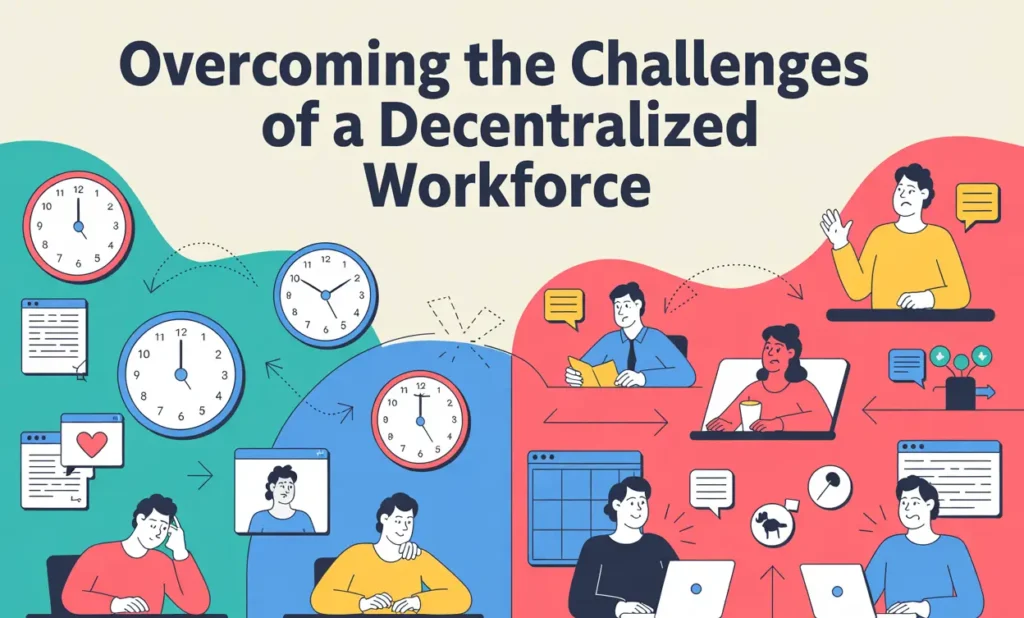
Despite its many advantages, decentralization presents unique challenges. However, forward-thinking companies are proactively addressing these issues.
Time Zone Differences
Global teams often face coordination issues due to varied working hours. Solutions include core overlapping hours, asynchronous communication, and smart scheduling tools like World Time Buddy.
Digital Fatigue
Extended screen time can lead to burnout. Companies mitigate this by promoting “camera-optional” policies, encouraging breaks, and implementing no-meeting days.
Isolation and Disengagement
Remote work can be isolating. Leading companies combat this with mental health resources, regular 1:1 check-in, and virtual wellness initiatives.
Future Outlook: The Rise of Borderless Enterprises
The decentralized workforce is not a trend it is the future of work. With continuous technological advancement and changing employee expectations, corporations will continue to innovate, adopting borderless operational models that prioritize flexibility, diversity, and resilience.
Forward-looking companies are already building decentralized-first strategies, where autonomy, trust, and innovation become their competitive edge.
